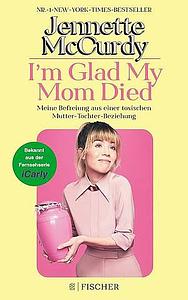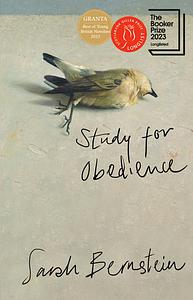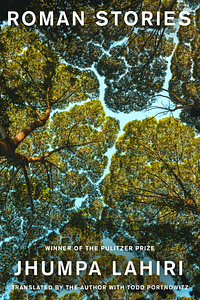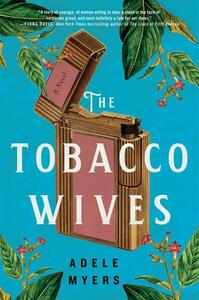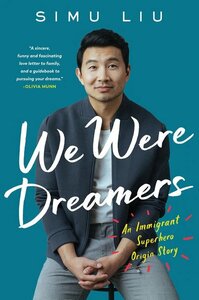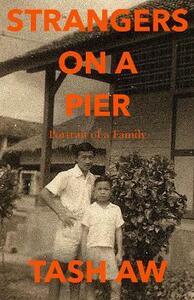Take a photo of a barcode or cover
_askthebookbug's Reviews (1.34k)
Study for Obedience is a strange novella. Shortlisted for the Booker Prize and winner of the Scotia Giller Prize, this book has the ability to either hit the mark or miss it. Written by Sarah Bernstein, this eerie story revolves around an unknown woman who moves to an unnamed countryside to assist her brother after his wife and kids move out. The trouble begins when a series of unfortunate and bizarre events occur after her arrival. There’s a phantom dog pregnancy, cows going mad, a dead ewe and her lamb. Our protagonist doesn’t speak the countryside’s language and this puts her in an odd spot with the locals. And they don’t trust her because of the things happening around them.
It gets clear very early on that the woman is brought up in a way to listen to her parents and brothers without any question. She dedicates herself in taking care of her divorced brother. Her self worth is attached to what others think of her, constantly worrying if her actions are considered normal or wrong. She tries her best to participate in the village activities but never manages to make a single friend. A major chunk of the novella describes her time in the countryside, taking walks and talking about her past, all the while describing her current business in the strange village.
This novella works because of the atmosphere it sets. It’s eerie with almost a haunting twinge to it because it keeps you guessing about what would happen next. The plot is fairly simple but it is Bernstein’s writing style that grabs your attention. It reads long, narrations that stretch. And this was why I had to push myself to finish it. Apart from the long narrative, it did tend to deviate every now and then. It was hard to hold on to the story, while constantly trying to pay attention to it. This book may not be for everyone but it certainly challenges you with its unique way of writing.
Thank you for the copy @penguinindia x @meenakshikainth_ ✨
It gets clear very early on that the woman is brought up in a way to listen to her parents and brothers without any question. She dedicates herself in taking care of her divorced brother. Her self worth is attached to what others think of her, constantly worrying if her actions are considered normal or wrong. She tries her best to participate in the village activities but never manages to make a single friend. A major chunk of the novella describes her time in the countryside, taking walks and talking about her past, all the while describing her current business in the strange village.
This novella works because of the atmosphere it sets. It’s eerie with almost a haunting twinge to it because it keeps you guessing about what would happen next. The plot is fairly simple but it is Bernstein’s writing style that grabs your attention. It reads long, narrations that stretch. And this was why I had to push myself to finish it. Apart from the long narrative, it did tend to deviate every now and then. It was hard to hold on to the story, while constantly trying to pay attention to it. This book may not be for everyone but it certainly challenges you with its unique way of writing.
Thank you for the copy @penguinindia x @meenakshikainth_ ✨
I’ve read and loved Jhumpa Lahiri’s books in the past and this also includes her recent work, Whereabouts. There’s a certain charm and quaintness that comes with reading her stories, and one of my earliest memories of her writing was that of Unaccustomed Earth. Ever since then there has been a constant evolution in her writing style and I think it becomes sharply clear in Roman Stories. Roman Stories includes 9 stories written by her in Italian out of which three have been translated by Todd Portnowitz.
Her stories have always been unique in the sense of capturing human nature as they adapt to certain places or situations. The storyline itself doesn’t offer much but she makes us follow the characters and their lives in close proximity. In Roman Stories we see people adapting to Rome, and I say this because most of the characters are outsiders. These are immigrants or people who just chose to live in the Eternal City. We watch them navigate through the streets of Rome, making friends or lovers, some of them finding their roots in this strange city, while a few fly away overseas. Lahiri also paints a strong image of racial discrimination faced by the fictional characters, a subtle hint of hatred and anger that is directed towards them.
Divided into three sections, although it didn’t make much of a difference, these stories carry a strong sense of authenticity to them. The stories felt like they were written by a seasoned and a long time resident of Rome, so I do appreciate Lahiri’s prowess when it comes to that. But ultimately I was a bit disappointed by the book because I couldn’t find the old Lahiri’s writing style. Writing in Italian has definitely shifted her style but sadly, I’d still choose her stories from the pre Italian era.
But one can go either ways with this short story collection and I’d want you to read and see how you’d like it.
Her stories have always been unique in the sense of capturing human nature as they adapt to certain places or situations. The storyline itself doesn’t offer much but she makes us follow the characters and their lives in close proximity. In Roman Stories we see people adapting to Rome, and I say this because most of the characters are outsiders. These are immigrants or people who just chose to live in the Eternal City. We watch them navigate through the streets of Rome, making friends or lovers, some of them finding their roots in this strange city, while a few fly away overseas. Lahiri also paints a strong image of racial discrimination faced by the fictional characters, a subtle hint of hatred and anger that is directed towards them.
Divided into three sections, although it didn’t make much of a difference, these stories carry a strong sense of authenticity to them. The stories felt like they were written by a seasoned and a long time resident of Rome, so I do appreciate Lahiri’s prowess when it comes to that. But ultimately I was a bit disappointed by the book because I couldn’t find the old Lahiri’s writing style. Writing in Italian has definitely shifted her style but sadly, I’d still choose her stories from the pre Italian era.
But one can go either ways with this short story collection and I’d want you to read and see how you’d like it.
It’s no secret that I absolutely love finding new historical fictions, ones that cover a topic that I’ve never had the chance to explore before. When I first stumbled across The Tobacco Wives, it was the cover that caught my eye but I was fully convinced to read it after reading the blurb. The story takes roots from Adele’s own family history in North Carolina where tobacco played a big role in the 1940s. This book also has a very strong feminist narrative. It was women who took over the reins of running many factories while the men were drafted and the novel also covers this aspect.
Our protagonist is a 15 year old girl named Maddie Sykes who has a martyred father and a mother who craves for her own space. And so she is left with her aunt Etta in Bright Leaf. Etta is a talented seamstress and under her tutelage, Maddie also flourishes as one. During her stay in Bright Leaf, Maddie comes across many hurdles including the ones that has been putting everyone at risk. Tobacco was advertised as a medicinal supplement back then and women were told to smoke even during their pregnancies to deliver healthy babies. It doesn’t take long for Maddie to realise the repercussions of this plant and so she is forced to do something about it.
Adele paints a very strong picture of women sustaining their families in the absence of men, at a time when they were still considered to just take care of their homes. She has spun this story around some incredible supporting characters, keeping the essence of the history alive. It was interesting to read about how people were unaware of the true nature of a plant that gave livelihood to lakhs of people, all of them believing that it saved lives. This is certainly an underrated read and if you’re a historical fiction fan, chances are that you may very well enjoy this fast paced book.
Our protagonist is a 15 year old girl named Maddie Sykes who has a martyred father and a mother who craves for her own space. And so she is left with her aunt Etta in Bright Leaf. Etta is a talented seamstress and under her tutelage, Maddie also flourishes as one. During her stay in Bright Leaf, Maddie comes across many hurdles including the ones that has been putting everyone at risk. Tobacco was advertised as a medicinal supplement back then and women were told to smoke even during their pregnancies to deliver healthy babies. It doesn’t take long for Maddie to realise the repercussions of this plant and so she is forced to do something about it.
Adele paints a very strong picture of women sustaining their families in the absence of men, at a time when they were still considered to just take care of their homes. She has spun this story around some incredible supporting characters, keeping the essence of the history alive. It was interesting to read about how people were unaware of the true nature of a plant that gave livelihood to lakhs of people, all of them believing that it saved lives. This is certainly an underrated read and if you’re a historical fiction fan, chances are that you may very well enjoy this fast paced book.
A book of under 100 pages that speaks volumes is such a rarity. And Tash Aw's memoir of his family is one such marvel. Tracing his family's roots, Aw speaks of how it feels like to be an immigrant even decades later. Not only does he cover his grandparents' journey to the Malay Peninsula and how they had to adapt in a new place but he also speaks about living with a face that both belongs and also makes one ask where he's from.
It's the second part of the book that I truly loved reading, in which he speaks about his grandmother. There's something very moving about the way he writes about her upbringing. There's a lot to unpack from this short memoir, making one ponder over their own roots. This book reminded me of a short post that I wrote a year ago about carrying certain traits that once belonged to our parents and grandparents.
The writing is exceptional, flawless and so wholesome. Tash Aw's words will probably stay with me for a very long time, like how I treasure fallen flowers between the pages of a book.
I can't recommend this book enough. And I can't wait to read more by @tash.aw
It's the second part of the book that I truly loved reading, in which he speaks about his grandmother. There's something very moving about the way he writes about her upbringing. There's a lot to unpack from this short memoir, making one ponder over their own roots. This book reminded me of a short post that I wrote a year ago about carrying certain traits that once belonged to our parents and grandparents.
The writing is exceptional, flawless and so wholesome. Tash Aw's words will probably stay with me for a very long time, like how I treasure fallen flowers between the pages of a book.
I can't recommend this book enough. And I can't wait to read more by @tash.aw
Pink gins under a mango tree.
🌻
Thank you so much for the review copy @pegasuspublishers
🌻
Set during the colonial days in Africa, this book was a much needed light-hearted read. The book is small consisting of only 81 pages which I managed to finish well within an hour. Sylvie, a woman from Northeastern London moves to Ghana to join her husband, Rudi. The author then talks about the dramas and tantrums of a middle class family.
🌻
Post moving to Africa, Sylvie finds herself surrounded by exotic people and culture as she sits back and enjoys a lavish lifestyle. What initially looks like Paradise soon turns into a nightmare as Sylvie unveils the masks of those around her including her own husband. When a visit to her doctor turns out to be an outrageous one as he proceeds to perform an abortion without her consent, and the unfair treatment of her husband towards her, makes her realise the plasticity of her life.
🌻
This book is beautiful in its own way and is a perfect example of how short books still leave an impact on the readers' mind. If you're looking for something sharp and witty then go for it :)
🌻
I would rate this book 5/5.
🌻
Thank you so much for the review copy @pegasuspublishers
🌻
Set during the colonial days in Africa, this book was a much needed light-hearted read. The book is small consisting of only 81 pages which I managed to finish well within an hour. Sylvie, a woman from Northeastern London moves to Ghana to join her husband, Rudi. The author then talks about the dramas and tantrums of a middle class family.
🌻
Post moving to Africa, Sylvie finds herself surrounded by exotic people and culture as she sits back and enjoys a lavish lifestyle. What initially looks like Paradise soon turns into a nightmare as Sylvie unveils the masks of those around her including her own husband. When a visit to her doctor turns out to be an outrageous one as he proceeds to perform an abortion without her consent, and the unfair treatment of her husband towards her, makes her realise the plasticity of her life.
🌻
This book is beautiful in its own way and is a perfect example of how short books still leave an impact on the readers' mind. If you're looking for something sharp and witty then go for it :)
🌻
I would rate this book 5/5.
